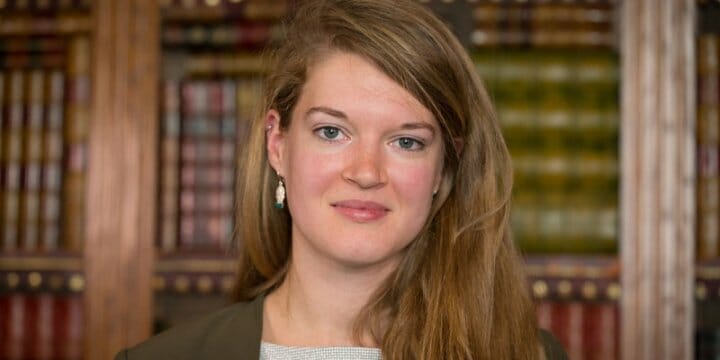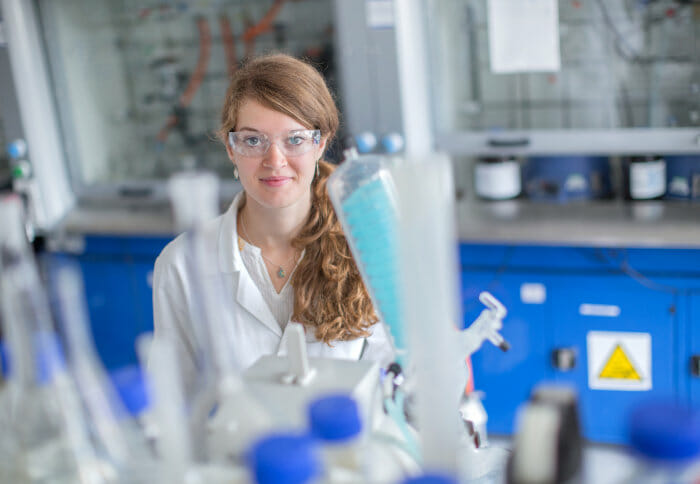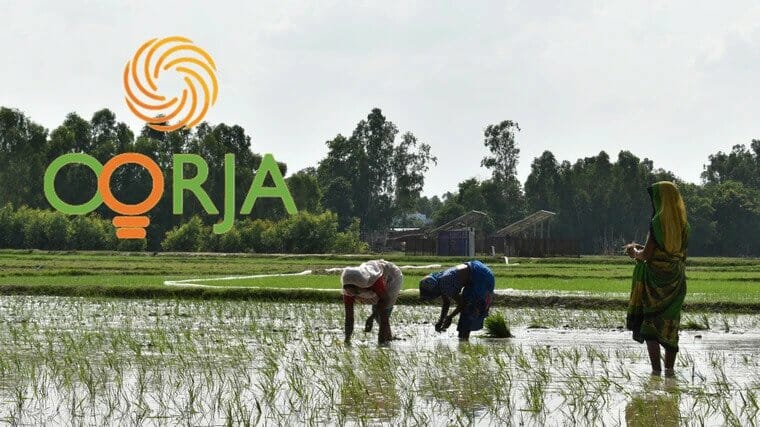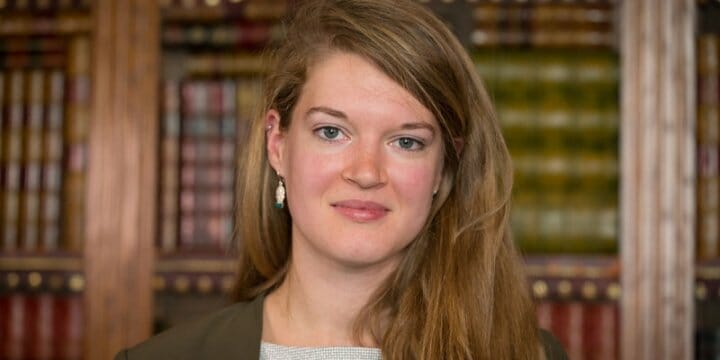
Our work helps farmers increase crop yields, diversify production, reduce waste and mitigate carbon emissions and creates direct employment at the last mile. These services have the potential for adoption by India’s 30 million diesel-reliant farmers
Clementine Chambon
Clementine Chambon – Co-founder & CTO – Oorja Development Solutions
2022 WE Empower Finalist, Asia-Pacific
Clementine Chambon is the co-founder and CTO of Oorja Development Solutions, an award-winning farming service company in India. Chambon spent the last 8 years working on sustainable agriculture, renewable energy, and rural development. Before joining Oorja, she was a renewable energy consultant working on climate change mitigation. Chambon studied Chemical Engineering at the University of Cambridge and completed her degree in bioenergy at Imperial College London.

Aligning with UN SDG 1: No Poverty, UN SDG 7: Affordable and Clean Energy, UN SDG 13: Climate Action, Oorja Development Solutions is bringing solar technology to energy-starved communities in India. Oorja’s mission is to empower “10 million farmers globally by 2030 with the agricultural solutions they need to sustainably increase their income and quality of life.” It also replaces the fossil fuels used in agriculture with clean energy services.
No Poverty
To reduce poverty, Oorja uses a business model that reaches small, marginal, and women farmers who do not get access to government schemes due to limited capital, budget, and capital. Oorja addresses poverty by letting under-served communities use more efficient and modern machines that help increase food security. Oorja users pay based on the amount of irrigation water they use or the quantity of grains processed/stored.
Oorja has received “significant traction and evidence of impact in reducing on-farm energy costs by 20-50% and increasing the reliability of agricultural energy supply, enabling farmers to expand their cultivation seasons, increase agricultural productivity, grow and process high-value crops, and sell them at a greater profit, resulting in increased income for farmers.” In fact, an impact study showed that after one year of using irrigation water services increase their agricultural productivity by 15% and income by 29%
Affordable and Clean Energy
Oorja assists smallholder farmers with getting important agri-energy technology. For example, Oorja finances decentralized PV infrastructure and provides affordable solar-powered services that are reliable, emission-free, and 50% cheaper than diesel alternatives.
Oorja’s three integrated agri-energy services are:
- “Oonnati”, a pay-per-use irrigation service. Oorja deploys solar BLDC and AC submersible pumps of 5 HP capacity at the farm which can deliver up to 250 m3 of water per day
- “Oojjwal” is a pay-per-use milling service for grinding flour, pulses, spices and other dried produce into edible food products for self-consumption
- “Oonnayan” is a pay-per-use solar-powered cooling service. Oorja deploys 2 or 5 MT solar cold storages for use by 50 or more farmers
Climate Action
One of the challenges that smallholder farmers in rural India face is using diesel-based groundwater pumps, which can be very expensive and contributes to greenhouse gas emissions. Additionally, farmers lack solar cold storages to store perishable produce which leads to 20%-30% food spoilage after harvest. Food waste contributes to a significant greenhouse gas footprint, exacerbating climate change. Oorja helps farmers transition from diesel to low-carbon solar energy, reducing carbon emissions and avoiding food waste. So far “ Oorja has abated 485.4 tons of carbon emissions and avoided 7.4 tons of food. 6,500+ farmers have stopped relying on fossil fuels, reducing their exposure to volatile fuel prices, reducing air pollution and on-farm carbon emissions.”

"Oorja is a mission-driven organization and is committed to ensuring that the environment is not degraded in the process of economic development, and that renewable natural resources are managed sustainably"
The WE Empower UN SDG Challenge is a first-of-its-kind global competition for women entrepreneurs who are pushing the UN Sustainable Development Goals and leading innovation in sustainability and climate change through their businesses. This Contributing Series highlights finalists of the Challenge whose work demonstrates how business models and social entrepreneurship can drive global impact.
by Fahima Ali
